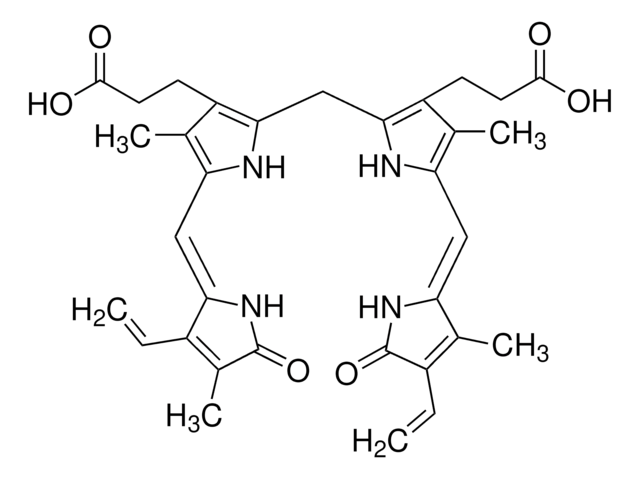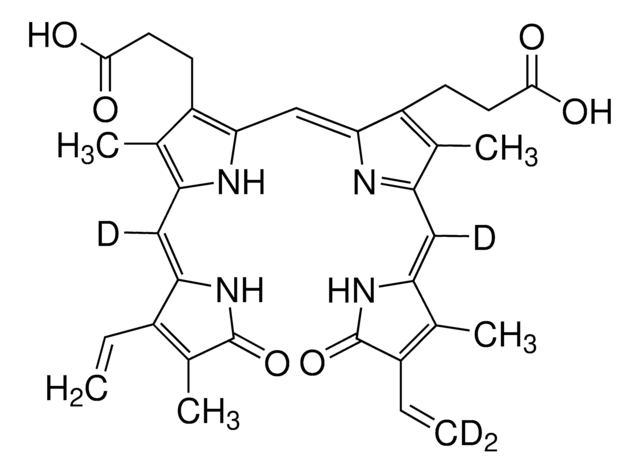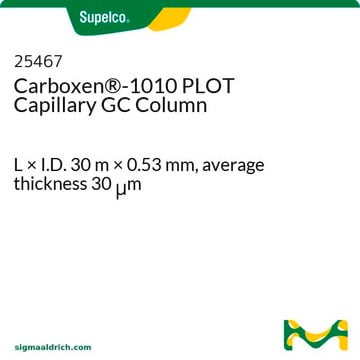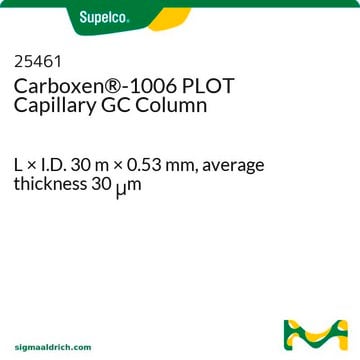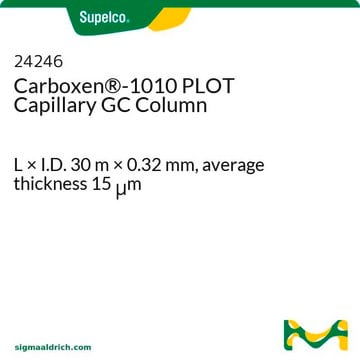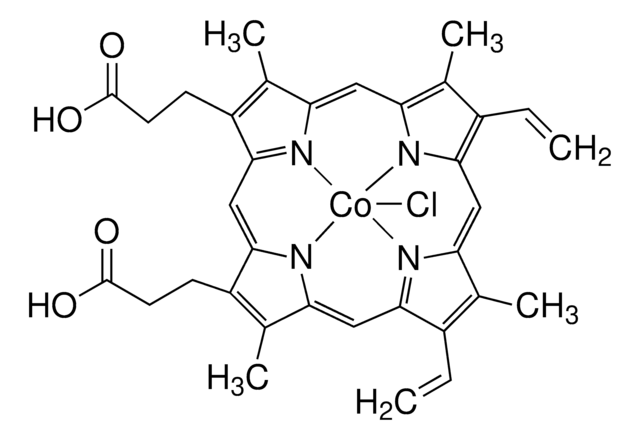30891
Biliverdin hydrochloride
≥97.0% (TLC)
Synonym(s):
Biliverdin
About This Item
Recommended Products
Quality Level
Assay
≥97.0% (TLC)
form
powder or crystals
application(s)
metabolomics
vitamins, nutraceuticals, and natural products
storage temp.
−20°C
SMILES string
Cl.CC1=C(C=C)C(\NC1=O)=C\c2[nH]c(/C=C3\N=C(\C=C4/NC(=O)C(C=C)=C4C)C(C)=C3CCC(O)=O)c(CCC(O)=O)c2C
InChI
1S/C33H34N4O6.ClH/c1-7-20-19(6)32(42)37-27(20)14-25-18(5)23(10-12-31(40)41)29(35-25)15-28-22(9-11-30(38)39)17(4)24(34-28)13-26-16(3)21(8-2)33(43)36-26;/h7-8,13-15,35H,1-2,9-12H2,3-6H3,(H,36,43)(H,37,42)(H,38,39)(H,40,41);1H/b26-13-,27-14-,28-15-;
InChI key
KTRFJVRKVQROKS-UJCZHUFNSA-N
Related Categories
General description
Application
- as a treatment to J774A.1 cells to study its role in alternation of beta (β)-endorphins level
- as a commercial standard for the detection of biliverdin in mouse unstable and stable plaques tissues using liquid chromatography-tandem mass spectrometry (LC-MS-MS)
- to add to Fucci-containing cells to improve the mIFP signal
- to examine its impact on infrared fluorescent protein (iRFP) in some retinal preparations
Biochem/physiol Actions
Packaging
Signal Word
Warning
Hazard Statements
Precautionary Statements
Hazard Classifications
Eye Irrit. 2 - Skin Irrit. 2 - STOT SE 3
Target Organs
Respiratory system
Storage Class Code
11 - Combustible Solids
WGK
WGK 3
Flash Point(F)
Not applicable
Flash Point(C)
Not applicable
Certificates of Analysis (COA)
Search for Certificates of Analysis (COA) by entering the products Lot/Batch Number. Lot and Batch Numbers can be found on a product’s label following the words ‘Lot’ or ‘Batch’.
Already Own This Product?
Find documentation for the products that you have recently purchased in the Document Library.
Customers Also Viewed
Our team of scientists has experience in all areas of research including Life Science, Material Science, Chemical Synthesis, Chromatography, Analytical and many others.
Contact Technical Service